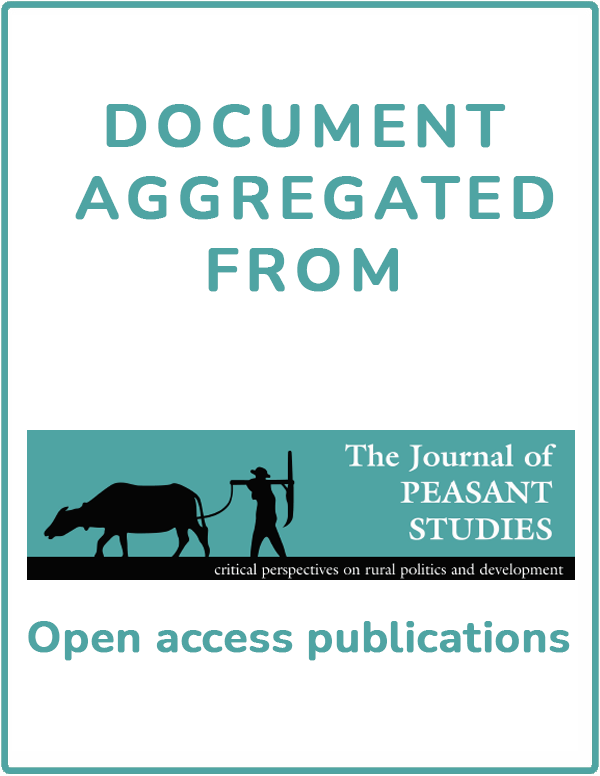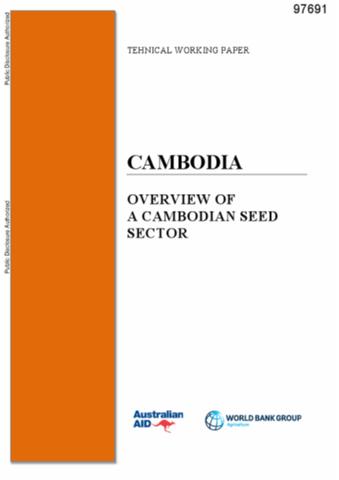An overview of Fast Track Land Reform in Zimbabwe: editorial introduction
No Abstract
Changing agrarian relations after redistributive land reform in Zimbabwe
Redistributive land reform and agrarian reforms since 2000 progressively changed some of Zimbabwe's agrarian relations, particularly by broadening the producer and consumption base. However they fuelled new inequities in access to land and farm input and output markets. These complex structural changes are explored using a series of surveys, secondary sources and official documents. Findings show that exploitative agrarian labour practices continue despite the diversification of labour towards numerous farms and other enterprises.
LESSONS FOR THE POTENTIAL USE OF CONTRACT FARMING WITH SMALL LAND HOLDING FARMERS IN MYANMAR
Introduction: "The goal of poverty alleviation is now seen as a high priority project for
Myanmar’s new
government.
In
public statements the new President, Thein Sein, has raised issues of
poverty in
Myanmar
as a problem
facing
the country (as opposed to a previous failure to
acknowledge any such problems.)
Support for this goal
was verbally
reiterated
in a
May
2011
Poverty Alleviation Seminar headed by Dr. U Myint, and again, more broadly, at an
Cambodia
The use of quality seed is a major component of increased yields in crop production. Quality seed and seed programs in a country does not emerge by happenstance; it is created by a combination of many factors that include variety development, seed production, quality control, processing, marketing, and governmental oversight. As the seed sector in a country matures, each of these factors becomes more important and plays a more important role in the growth of the agricultural sector. The seed program in Cambodia is interestingly different from that in many other developing countries.
A historical perspective on the “Global Land Rush”
Includes the globalisation of food production and consumption – structural changes within the international food regimes and contract farming and global commodity chains; contemporary land acquisition; conceptual frameworks – human rights and corporate social responsibility perspectives; case studies of Rwanda and Kenya.
Contract farming in Sub-Saharan Africa: lessons from cotton on what works and under what conditions
Rich consumers and poor producers
In recent years, quality standards have become crucial for developing countries’ agricultural production systems in gaining access to high-value markets abroad or at home. High-value supply chains offer opportunities for high profits, but in order to comply with the required standards, suppliers in developing countries often need extensive support from agrifood companies.
Global retail chains and poor farmers
Contract Farming In Burma
Summary: Since 2005, the Burmese Government has encouraged
investors from China, Thailand, Bangladesh, and Kuwait to
invest in contract farms; to date, only the Thais have a
formal agreement to farm 120,000 acres along the Thai-Burma
border. Over the past six months, several Burmese companies
-- Tay Za's Htoo Trading, Zaw Zaw's Max Myanmar, Steven Law's
Asia World, and Aung Thet Mann's Aye Ya Shwe Wa -- were given
more than 100,000 acres of farmland in the Irrawaddy Delta
and Rangoon Division for contract farming. The Ministry of
Improving farm-to-market linkages through contract farming
Contract farming is emerging as an important form of vertical coordination in the agrifood supply chain in India, and its socioeconomic consequences are attracting considerable attention in public policy debates. This study is an empirical assessment of the costs and benefits of contract farming in milk using information generated through field surveys in the western state of Rajasthan. Contract farming is found to be more profitable than independent production. Its major benefits come from a reduction in marketing and transaction costs, which are otherwise much higher in the open markets.










